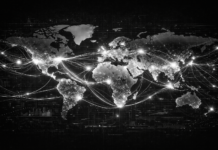
Liner operators have told South Korean shippers that it will not be easy to solve Transpacific container capacity issues, in a meeting last week.
The Korea International Trade Association (KITA) initiated a meeting with representatives of various liner operators on 24 September, through the Korea Shipowners’ Association (KSA), to discuss rising Transpacific rates, which have come to the attention of both China’s Ministry of Transport and the US Federal Maritime Commission.
The shippers complained that, during Covid-19, it has been hard for them to secure capacity due to blanked sailings. However, they are pressed for time to export goods because of the upcoming Chuseok and National Day holidays in South Korea and China.
The shortage of capacity and containers has caused upward pressure on freight rates, which have risen to near record levels and added to manufacturers’ costs. The third quarter has traditionally been the busiest for container shipping, as Thanksgiving and Christmas lead to peak demand for consumer goods in Europe and the US.
KITA vice-chairman Han Jin-hyun said, “Shippers and shipping companies, which play a pivotal role in imports and exports, have different interests, depending on market conditions, but the export environment is difficult because of Covid-19 so we must strive for mutual co-operation.”
His KSA counterpart, Kim Young-moo, said, “Local shipping companies are operating with additional ships to resolve the shortage of vessels, and they will actively co-operate in expanding the supply of ships in the future.”
HMM has made an exception by unilaterally deploying a ship to transport goods between Busan and Los Angeles.
A spokesperson for HMM told Container News, “HMM is well aware that shippers are suffering from a shortage of capacity on Transpacific routes due to the recent surge in demand and is working hard to mitigate the effects on our customers.”
He said part of these efforts has seen HMM redeploy tonnage to the Pacific and the company has no idle ships.
While KITA and KSA released positive statements, South Korean newspaper Daily Log quoted one source as saying that vessels cannot be idled and reactivated at whim, as alliance members must agree.
He added, “Decisions on rates are primarily made by foreign shipping companies, and HMM and SM Line are not that influential in their alliances.”
Major shippers were represented at the meeting including Samsung SDS, Kia Motors and Hyundai Glovis, while liner operators present were HMM, SM Line, Maersk and MSC.
Martina Li
Asia Correspondent




